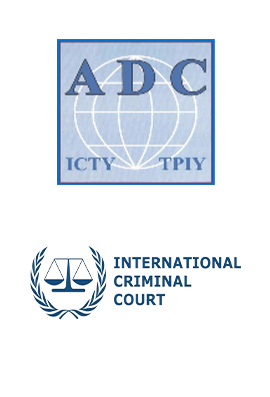

-
“He truly is there for his clients at every step and genuinely cares about them.”
- Arlene -
“I really did not think he would get off that easy but, Mr. Beasley was able to accomplish what I thought was going to have much greater consequences.”
- Tracy C. -
“I can never pay you enough for what you did for me.”
- Jorge I.

Why Choose Us?
-
Free Phone Consultation
-
Over 25 Years of Experience
-
Results-Driven Advocacy
-
Direct Access to the Attorney
-
Genuine Care and Compassion for Our Clients
-
Comprehensive Immigration Services
Why You Need a Fort Worth Juvenile Defense Lawyer
If your child is facing any type of juvenile charge, this isn’t the time to stand aside and let The State of Texas parent your child and teach them life’s lessons. Those that do, usually don’t have any idea what they are exposing their child to until it’s far too late. Texas juvenile law and its application have changed dramatically during the last few decades. The combined result is a Juvenile Justice System that is more aggressive and tougher than ever before and may punish your child with lifelong consequences that follow them even into adulthood.
A Juvenile is defined in Texas as a child between the ages of 10 and 16 years old. When the
State of Texas charges a juvenile, the child is normally alleged to have been engaging in
delinquent conduct by committing a criminal offense(s), as defined in the Texas Penal Code,
and the child’s case is handled within the Juvenile Justice System. In certain
circumstances, the a juvenile Judge may certify a child to be tried as an adult. This means
adult court, facing
adult punishment. In other situations, the DA’s office may
elect to proceed with a determinant sentence, which provides in part that upon a delinquent
finding, a child faces up to 40 years in the Texas penitentiary.
If your child has been arrested or is otherwise being charged as a juvenile offender; it’s essential to hire the best juvenile defense lawyer that you can afford, as quickly as possible. Juvenile cases move extremely fast. It’s not uncommon for a child to have a trial within a matter of weeks or months after being charged, so time is of the essence.
Bruce Beasley’s AV rating by Martindale Hubble, his continued recognition as one of Tarrant County’s “Top Attorneys” from 2012 through 2021 by Fort Worth Magazine, a 10.0 superb AVVO’s rating and being included as a “Top 100 Trial Lawyers” in 2013 by the National Trial Lawyers, allows you to feel secure, knowing you’ve done everything you can to protect and help your child.
Hire a Former Juvenile Prosecutor
As a former Tarrant County Juvenile Prosecutor, Bruce Beasley understands the intricacies of the Juvenile Justice System and the tactics that prosecuting attorneys use in juvenile cases, giving us a distinct edge in crafting a winning strategy. Bruce Beasley has been practicing law for nearly 30 years. Regardless of how minor or serious your child’s charges might appear to be, your child needs and deserves the best juvenile defense lawyer you can afford to work towards the best possible result.
A law enforcement officer may take a juvenile into custody in Texas if they have probable cause to believe that the juvenile violated a criminal law, engaged in delinquent conduct or conduct indicating a need for supervision, or violated a court-ordered condition of probation. Note that an officer is not required to obtain an arrest warrant as in the adult criminal system.
Juvenile Arrest and Detention Hearings
When a juvenile is taken into custody, they must be delivered directly to a juvenile processing office, and their parent or guardian must be promptly notified. Within 48 hours from when the accused was taken into custody, a court must conduct a detention hearing to determine whether to release or detain the juvenile in a facility until their court appearance. The juvenile must be released from detention unless the court finds that:
- they are likely to be removed from the jurisdiction of the court;
- suitable supervision, care, or protection for them are not being provided by a parent, guardian, custodian, or other person;
- they have no parent, guardian, custodian, or other person able to return them to the court when required;
- they may be dangerous to themselves or may threaten the safety of the public if released; or
- they have previously been found to be a delinquent child or have previously been convicted of a penal offense punishable by a term in jail and is likely to commit an offense if released.
If the juvenile is kept in detention, a detention hearing must be held every 10 days to determine whether continued detention is necessary. If the court decides to release the juvenile, it may impose specific conditions relating to the release, such as requiring the juvenile’s parent or guardian to assist the child with abiding by their conditional release.
Sentencing Ranges for Juveniles
The courts tend to be more lenient in juvenile cases, but the penalties are still serious. In the juvenile system, there is no established minimum or maximum sentence, as opposed to the adult criminal system. Juvenile offenders often face a range of punishment varying from commitment to the Texas Juvenile Justice Department (TJJD) until they turn 19 years old to placement on probation that can last until they turn 18.
In some cases, a juvenile might face a determinate sentence, which would potentially allow their punishment to ultimately be transferred to adult court or adult prison. In other cases, the juvenile might ask the court to waive its jurisdiction and certify the juvenile as an adult. The main difference is that in the former situation, the petition and sentence is kept within the juvenile court system, while the latter is transferred to adult court prior to any adjudication.
One advantage of a determinate sentence is that it sets a punishment range of up to 40 years. Felonies eligible for a determinate sentence include first degree possession of a controlled substance, aggravated assault, and sexual assault. However, a juvenile may not seal their juvenile record if they are adjudicated on a determinate petition.
If the juvenile’s sentence cannot be completed before they turn 19 years old, the TJJD will determine whether it is appropriate to transfer them to an adult prison or to release them to parole. TJJD can request a transfer hearing any time after the juvenile turns 16 years old, but the transfer procedure must be completed prior to their 19th birthday; an offender cannot be held at a TJJD facility past their 19th birthday.
Questions? Call (817) 338-1877
If your child is facing criminal charges in Fort Worth, contact Beasley Law Firm immediately for legal guidance. The juvenile justice system can be confusing to navigate, especially because it is starkly different from the adult criminal justice system. Our firm can take a look at the specific charges against your child and help you chart your legal path moving forward. We can help you argue for lighter sentences, avoid transfer to adult court, and petition for any hearings necessary to potentially shorten your child’s detention or arrest.
The Beasley Law Firm is located in Fort Worth, TX and serves clients in and
around Arlington, Dallas, Keller, Mansfield, Haltom City, North Richland Hills, Hurst,
Bedford, Naval Air Station/ Jrb, Colleyville, Euless, Haslet, Southlake, Grapevine,
Burleson, Azle, Lillian, Flower Mound, Venus, Newark, Alvarado, Justin, Joshua, Springtown,
and Dallas, Wise, Denton, Johnson and Tarrant Counties.
Attorney Advertising. This
website is designed for general information only. The information presented at this site
should not be construed to be formal legal advice nor the formation of a lawyer/client
relationship.
Call (817) 440-7707 or contact Beasley Law Firm online for a free consultation to learn more.
Award-winning Representation



.2205311137084.png)

.2202211528235.png)
.2202211532232.png)
.2202211531518.png)
.2202211531202.png)
.2203031357121.png)

.2202211530595.png)
.2202211530370.png)
.2202211530152.png)

.2202211529518.png)
.2202211529315.png)



